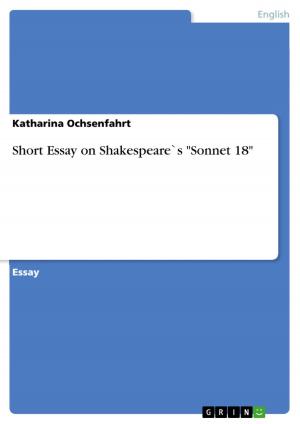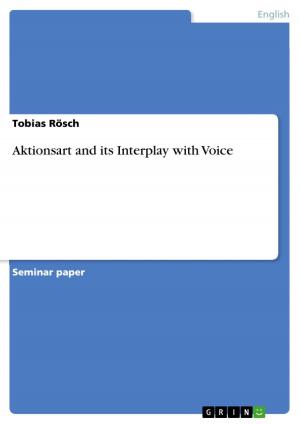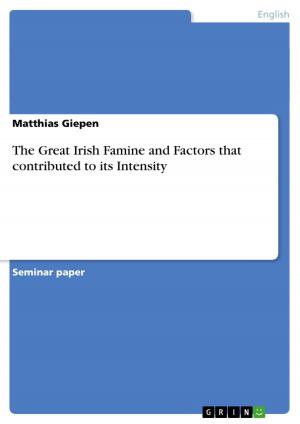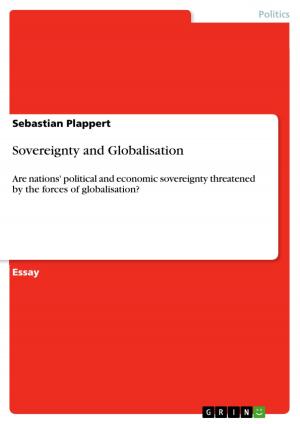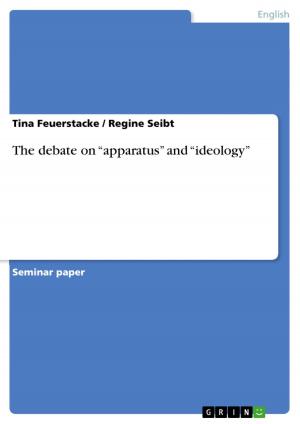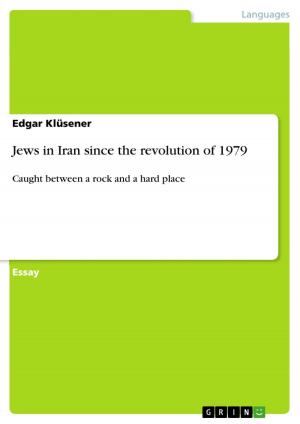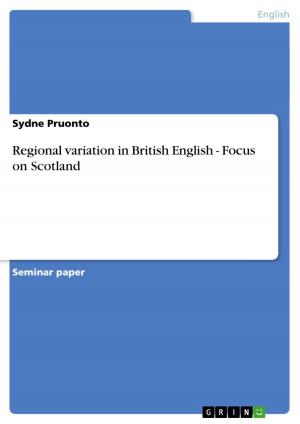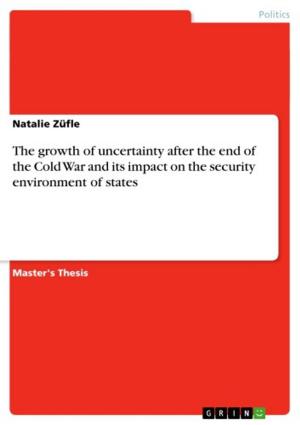| Author: | Jochen Breunig | ISBN: | 9783638145343 |
| Publisher: | GRIN Publishing | Publication: | October 7, 2002 |
| Imprint: | GRIN Publishing | Language: | English |
| Author: | Jochen Breunig |
| ISBN: | 9783638145343 |
| Publisher: | GRIN Publishing |
| Publication: | October 7, 2002 |
| Imprint: | GRIN Publishing |
| Language: | English |
Seminar paper from the year 2002 in the subject English Language and Literature Studies - Linguistics, grade: 2,3 (B), University of Mannheim (Anglistics Seminar), course: Proseminar Language Science, 9 entries in the bibliography, language: English, abstract: Text linguistic science, respectively discourse analysis, is a rather young linguistic discipline, which was mainly established in the 1960s and 70s. It mainly emerged from three linguistic movements: rhetoric, stylistics and structural analysis of narratives. Discourse analysis tries to figure out specific schemes which are relevant to define a chain of words as a text. As there have always been different definitions of what a text is it is absolutely necessary in this paper which definition is actually used. However, it has to be said that there is still no one and only valid definition of what a text is. Thus, the beginning of the paper deals with several theoretical subjects and explains the term 'text' that is relevant for the following analysis. Besides, it describes which criteria have to be fulfilled in order to achieve textuality. In the course of the analysis the paper applies the introduced text theory to an excerpt of David Lodge's novel 'Thinks...' which was published in 2001. The excerpt's textuality is examined by illustrating how far the seven criteria of textuality are fulfilled. This novel was chosen because it combines many different ways of telling. The analyzed extract, for example, is a stream of consciousness and contains many peculiarities. Therefore, it is very interesting to figure out if the passage can be defined as a text without problems. Furthermore, this paper analyzes the relevant peculiarities in the text's structure and in its syntax. In the course of this analysis, again, several necessary theoretical aspects are explained. Furthermore, the text type is named. As there are no peculiarities in the text's sound structure and as sign theory does not play a role these two points are not taken into consideration. At the end some concluding remarks sum up the text analysis's most important results. [...]
Seminar paper from the year 2002 in the subject English Language and Literature Studies - Linguistics, grade: 2,3 (B), University of Mannheim (Anglistics Seminar), course: Proseminar Language Science, 9 entries in the bibliography, language: English, abstract: Text linguistic science, respectively discourse analysis, is a rather young linguistic discipline, which was mainly established in the 1960s and 70s. It mainly emerged from three linguistic movements: rhetoric, stylistics and structural analysis of narratives. Discourse analysis tries to figure out specific schemes which are relevant to define a chain of words as a text. As there have always been different definitions of what a text is it is absolutely necessary in this paper which definition is actually used. However, it has to be said that there is still no one and only valid definition of what a text is. Thus, the beginning of the paper deals with several theoretical subjects and explains the term 'text' that is relevant for the following analysis. Besides, it describes which criteria have to be fulfilled in order to achieve textuality. In the course of the analysis the paper applies the introduced text theory to an excerpt of David Lodge's novel 'Thinks...' which was published in 2001. The excerpt's textuality is examined by illustrating how far the seven criteria of textuality are fulfilled. This novel was chosen because it combines many different ways of telling. The analyzed extract, for example, is a stream of consciousness and contains many peculiarities. Therefore, it is very interesting to figure out if the passage can be defined as a text without problems. Furthermore, this paper analyzes the relevant peculiarities in the text's structure and in its syntax. In the course of this analysis, again, several necessary theoretical aspects are explained. Furthermore, the text type is named. As there are no peculiarities in the text's sound structure and as sign theory does not play a role these two points are not taken into consideration. At the end some concluding remarks sum up the text analysis's most important results. [...]


